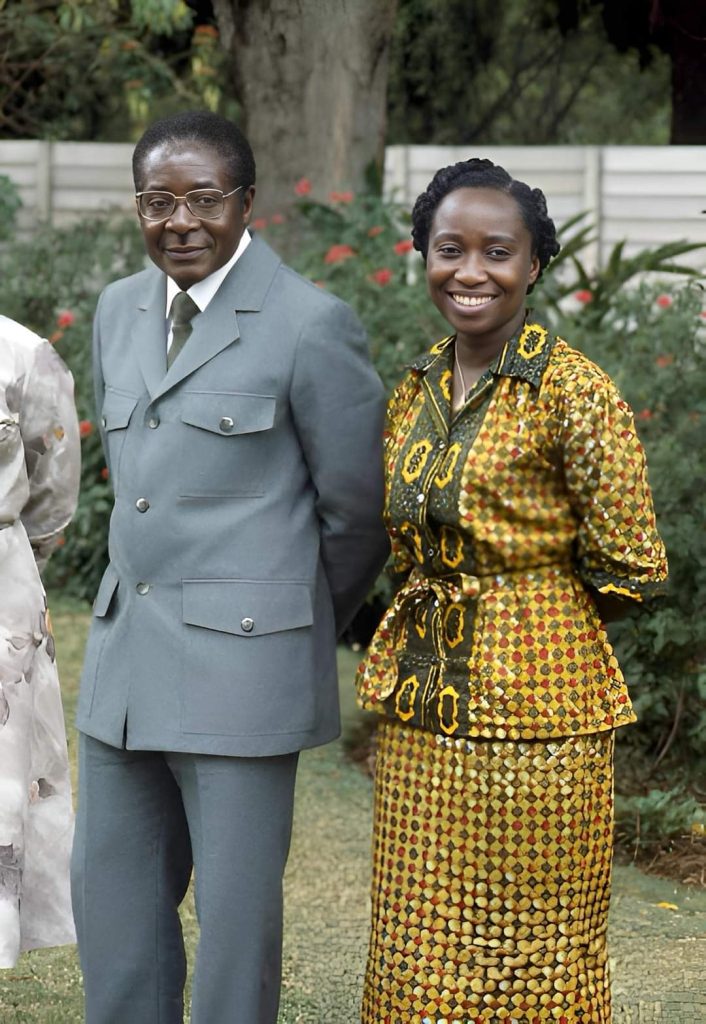Published
3 months agoon

Robert Mugabe, the former President of Zimbabwe, had a remarkable love story that began in Ghana. It was in this West African country that he met his first wife, Sarah Francesca Hayfron, who later became known as Sally Mugabe. The tale of their meeting and subsequent partnership is a testament to the power of love and the role they played in shaping the nation of Zimbabwe.
At the time of their meeting, Ghana had recently gained independence from the UK in 1957, and Mugabe had journeyed there to experience the dream of an independent African state. Sally, who was teaching in Takoradi city in Ghana’s Western Region, caught the attention and affection of the then unknown and struggling Robert Mugabe.
Sally Mugabe, born Sarah Francesca Hayfron in 1931 in the Gold Coast (present-day Ghana), belonged to a politically active family involved in the nationalist politics of the colonial Gold Coast. She attended Achimota School and pursued higher education before qualifying as a teacher. It was during her time as a teacher at the Takoradi Teacher Training College that she crossed paths with Mugabe.
In April 1961, Mugabe and Sally tied the knot in Salisbury, Southern Rhodesia (now Zimbabwe). Sally proved to be more than just a supportive wife; she emerged as a fierce political partner and activist when they returned to Mugabe’s home country.
Hayfron’s activism started as early as 1962 when she rallied African women to challenge the Southern Rhodesian constitution. For her efforts, she was charged with sedition and sentenced to five years imprisonment, with part of the sentence suspended.
In 1967, Sally went into exile in London, where she continued to fight for the release of political detainees in Rhodesia, including her husband, who had been arrested in 1964 and remained incarcerated for ten years. Unfortunately, their only son, Nhamodzenyika, was born in 1963 during Mugabe’s imprisonment and tragically died from malaria in Ghana in 1966. Mugabe was unable to attend his son’s burial.
Sally faced additional challenges when the British Home Office attempted to deport her in 1970. However, with the support of her husband, who petitioned the British Prime Minister and the Foreign and Commonwealth Office, she was granted British residency. Her case was backed by influential figures such as Labour MP Maurice Foley and Conservative peer Lord Lothian.
After Mugabe’s release in 1975 and his subsequent departure for Mozambique with Edgar Tekere, Sally reunited with her husband in Maputo. There, she embraced the role of a mother figure to the thousands of refugees displaced by the Rhodesian Bush War.
On January 27, 1992, Sally Mugabe passed away from kidney failure. She was laid to rest at the National Heroes’ Acre in Harare, Zimbabwe. In 2002, to commemorate the 10th anniversary of her death, Zimbabwe issued a set of postage stamps featuring two different photographs of Sally. Her legacy endures, as she is fondly remembered and celebrated as the founding mother of the nation of Zimbabwe.
Robert Mugabe and Sally Mugabe’s love story transcended borders and contributed significantly to the political landscape of Zimbabwe. Their partnership symbolized the strength of their shared vision for an independent Africa, and Sally’s unwavering activism and support played a crucial role in shaping Mugabe’s leadership. Together, they left an indelible mark on the history of Zimbabwe and are forever remembered with love and affection.
A village boy, a prolific storyteller who believes there is learning, unlearning and relearning in storytelling as well as shared lived experiences. A friend of justice and ROL




Warning: Undefined variable $user_ID in /home/iniafrica/public_html/wp-content/themes/zox-news/comments.php on line 49
You must be logged in to post a comment Login